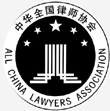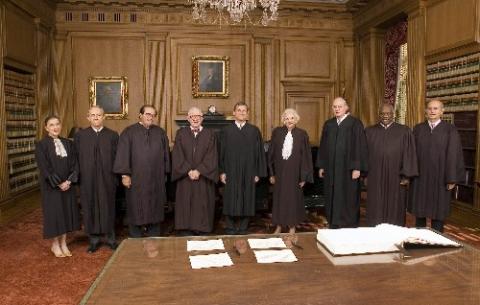上海婚姻律师
你在这里
Chapter 5 Venue
Federal venue rules determine the judicial district in which an action within the jurisdiction of federal courts may be brought.
I . Subject Matter Jurisdiction Distinguished
Subject matter jurisdiction and venue are very often confused. Subject matter jurisdiction is the power of the court to adjudicate the matter before it. Venue relates to the proper district in which to bring the action. Subject matter jurisdiction is a question of power or authority; venue is a question of convenience. Subject matter jurisdiction cannot be conferred by agreement; venue can be. A court can have subject matter jurisdiction without having proper venue.
II. General Rules
- General Rules for Most Civil Actions
Venue in civil actions in the federal courts is proper in;
- A judicial district where any defendant resides, if all defendants reside in the same state;
(2) A judicial district in which a substantial part of the events or omissions giving rise to the claim occurred,or a substantial part of property that is the subject of the action is situated;or
- If there is no district anywhere in the United States which satisfies(1)or(2);
- For actions based solely on diversity, a judicial district in which any defendant is subject to personal jurisdiction at the time the action is commenced;or
- For actions not based solely on diversity,a judicial district in which any defendant may be found.
- Actions Involving Both Diversity and a Federal Question
If an action satisfies the jurisdictional requirements for both federal question and diversity jurisdiction, the venue provisions for federal question cases govern, because such a suit is not" based solely on diversity. "
- Special Venue Provisions
There are many venue provisions applicable only to specified types of actions. Two worth noting are;
- An alien may be sued in any district.
- Where the defendant is the United States or an agency thereof,or an officer,employee, etc. , of the United States acting in his official capacity, a civil action may be brought where.(i)a defendant resides; (ii) a substantially part of the events or omission giving rise to the action occurred, or a substantial part of property that is the subject of the action is situated; or(iii)the plaintiff resides if no real property is involved in the action.
III. Residence
- Individuals
Residence for federal venue purpose is usually determined by a person’s domicile. Therefore , a person who maintains two homes usually will be deemed to reside only in the district of his domicile. It is possible,however,for a domiciliary of one state to reside for venue purposes in a different state.
- Corporations
For purposes of venue,a corporation is deemed to reside in any judicial district in which it is subject to personal jurisdiction at the time the action is commenced. If a state has more than one judicial district, the corporation is deemed to reside in any district in the state within which the corporation’s contacts would be sufficient to subject the corporation to personal jurisdiction if the district were a state; if there is no such district, the corporation is deemed to reside in the district within which it has the most significant contacts.
- Unincorporated Associations
For venue purposes,an unincorporated association"resides"where it does not business.
- Venue in"Local Actions"
A" local action" (e. g. ,an in rem action relating to real property) must be brought in the district where the property that is the subject matter of the action is located. Section 1392(b) provides that where the property is located in more than one district in the same state, venue is proper in any such district.
- Improper Venue May be Waived
Unlike jurisdiction over the subject matter,venue may be waived by the parties. Venue is considered to be waived unless timely objection(in a pre - pending motion or, where no such motion is made,in the answer)is made to the improper venue.
- Transfer
- Where Original Venue Is Proper
Section 1404(a) allows transfer to another district where the action" might have been brought" even though venue has been properly laid in the court before which the motion to transfer is made. The policy behind section 1404 is that while venue may be correct,the parties or the witness might be greatly inconvenienced by the trial in the original forum.
- Where Original Venue Is Improper
Section 1406(a)is designed for situations where the venue is improper and the alternative to transfer is dismissal of the action. The standard for transfer is" the interest of justice. " Transfer is more appropriate than dismissal except in extraordinary circumstances. The transferee forum must have subject matter jurisdiction and in personam jurisdiction over the defendant, and venue must be proper.
- Where Original Court Lacks Personal Jurisdiction
The Supreme Court has held that the original court’s lack of personal jurisdiction over the defendant does not affect its power to transfer a case under section 1404 (a).

 邱国开律师,系本站主编,在司法机关从事过侦查和公诉工作数年,现执业于上海博和汉商律师事务所,成功代理过大量婚姻继承等民事案件,专注于婚姻法、继承法等领域的研究。服务领域包括婚姻家庭案件代理、企业法律顾问等。执业证号为13101201210136994
邱国开律师,系本站主编,在司法机关从事过侦查和公诉工作数年,现执业于上海博和汉商律师事务所,成功代理过大量婚姻继承等民事案件,专注于婚姻法、继承法等领域的研究。服务领域包括婚姻家庭案件代理、企业法律顾问等。执业证号为13101201210136994




